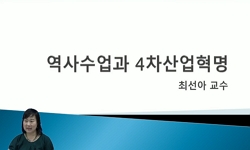본 논문에서는 휴먼 행동 인식에 있어 수집 데이터의 특성에 따라 기존 PSO (Particle Swarm Optimization) 알고리즘의 경계선 부분에서 발생되는 문제을 군집들 사이의 거리를 기반으로 개선하는 알...
http://chineseinput.net/에서 pinyin(병음)방식으로 중국어를 변환할 수 있습니다.
변환된 중국어를 복사하여 사용하시면 됩니다.
- 中文 을 입력하시려면 zhongwen을 입력하시고 space를누르시면됩니다.
- 北京 을 입력하시려면 beijing을 입력하시고 space를 누르시면 됩니다.
https://www.riss.kr/link?id=A100814323
-
저자
배창석 (대전대학교 IT융합공학부)
- 발행기관
- 학술지명
- 권호사항
-
발행연도
2015
-
작성언어
Korean
-
주제어
휴먼 행동 인식 ; 행동 분류 ; 군집 경계 거리 ; 군락 최화 ; 경계 보정 ; human activity ; lifelog ; classification ; boundary distance ; PSO
-
등재정보
KCI등재
-
자료형태
학술저널
-
수록면
47-56(10쪽)
-
KCI 피인용횟수
0
-
비고
학회 요청에 의해 무료로 제공
- 제공처
-
0
상세조회 -
0
다운로드
부가정보
국문 초록 (Abstract)
본 논문에서는 휴먼 행동 인식에 있어 수집 데이터의 특성에 따라 기존 PSO (Particle Swarm Optimization) 알고리즘의 경계선 부분에서 발생되는 문제을 군집들 사이의 거리를 기반으로 개선하는 알고리즘을 제안한다. PSO를 이용한 휴먼 행동 인식 방법은 입력 데이터를 경계값과 비교하여 인식하므로 상으로 빠르고 간단한 방 법이다. 하지만, 착용형 장치와 센서를 이용하는 휴먼 행동 인식에서와 같이 데이터 수집 환경의 변화에 따라 데이 터 특성의 변화가 심하여 학습 데이터와 테스트 데이터 사이의 차이가 생기는 경우 경계값 내에 포함되지 못하는 입 력 데이터들로 인해 성능이 하된다. 이를 해결하기 해 본 논문에서는 경계를 벗어나는 입력 데이터에 해 입력 데이터와 각 군집들의 경계와의 거리를 이용하여 행동 인식 성능을 개선한다. 실험 결과 앉기, 서기, 그리고 걷기와 같은 3 가지 휴먼 행동에 해 SVM (Support Vector Machine) MLP (Multi-Layer Perceptron)과 기존 PSO와 비교하여 최 약 18%의 인식 성능 개선을 가져오는 것을 확인하다.
다국어 초록 (Multilingual Abstract)
This paper proposes a modified PSO (Particle Swarm Optimization) algorithm for human activity recognition, which employs distance between boundaries to solve a problem arisen from the boundaries of the existing PSO algorithm. This problem generally ca...
This paper proposes a modified PSO (Particle Swarm Optimization) algorithm for human activity recognition, which employs distance between boundaries to solve a problem arisen from the boundaries of the existing PSO algorithm. This problem generally caused by inhomogeneous characteristics of the collected human activity data in daily life. Human activity recognition algorithm based on PSO is simple and fast since it classifies input data by comparing boundaries only. However, changes of data collection environment for human activity recognition using wearable and sensor devices cause changes in characteristics of input data, and this results in increase of input data outside of boundaries and decrease of classification performance according to different characteristics between training data and test data. In order to solve this problem, this paper increases performance by correcting boundaries of clusters using the distance between input data and every clusters for input data outside of every boundaries. Experimental results show that the proposed method demonstrates maximum 18% better performance comparing with SVM (Support Vector Machine), MLP (Muti-Layer Perceptron) and the existing PSO respectively for 3 human activities such as sitting, standing, and walking.
목차 (Table of Contents)
- 요약
- Abstract
- 1. 서론
- 2. PSO 알고리즘
- 3. 군집 경계 거리 기반 분류 방밥
- 요약
- Abstract
- 1. 서론
- 2. PSO 알고리즘
- 3. 군집 경계 거리 기반 분류 방밥
- 3.1 군집의 경계 생성
- 3.2 특징 가지치기
- 3.3 군집 경계 거리 기반 군집 분류
- 4. 실험결과
- 4.1 휴먼 행동 데이터 수집
- 4.2 행동 분류를 위한 특징
- 4.3 행동 분류 실험
- 5. 결론
- 참고문헌
참고문헌 (Reference)
1 배창석, "퍼스널 라이프로그 기반 생활 패턴의 일상 여부에 대한 분류" 한국차세대컴퓨팅학회 7 (7): 20-29, 2011
2 허성욱, "스마트폰 환경에서의 사용자 행동기록을 위한 수집주기 최적화" 한국차세대컴퓨팅학회 8 (8): 21-31, 2012
3 허성욱, "사용자 행동인식을위한 적응적 경계 보정기반 Particle SwarmOptimization 알고리즘" 1166-1169, 2012
4 이명규, "개인 맞춤형 헬스케어 서비스를 위한 선택적 라이프로그 관리기법" 한국차세대컴퓨팅학회 10 (10): 14-21, 2014
5 E. K. Choe, "Understanding Quantified-Selfers’ Practices in Collecting and Exploring Personal Data" CHI 2014
6 S. L. Lau, "Supporting Patient Monitoring Using Activity Recognition with a Smartphone" 810-814, 2010
7 R. Jafari, "Physical Activity Monitoring or Assisted Living at Home" 213-219, 2007
8 X. Hui, "Particle Swarm Optimization: Tutorial"
9 권용진, "Particle Swarm Optimization Using Adaptive Boundary Correction for Human Activity Recognition" 한국인터넷정보학회 8 (8): 2070-2086, 2014
10 J. Kennedy, "Particle Swarm Optimization" 1942-1948, 1995
1 배창석, "퍼스널 라이프로그 기반 생활 패턴의 일상 여부에 대한 분류" 한국차세대컴퓨팅학회 7 (7): 20-29, 2011
2 허성욱, "스마트폰 환경에서의 사용자 행동기록을 위한 수집주기 최적화" 한국차세대컴퓨팅학회 8 (8): 21-31, 2012
3 허성욱, "사용자 행동인식을위한 적응적 경계 보정기반 Particle SwarmOptimization 알고리즘" 1166-1169, 2012
4 이명규, "개인 맞춤형 헬스케어 서비스를 위한 선택적 라이프로그 관리기법" 한국차세대컴퓨팅학회 10 (10): 14-21, 2014
5 E. K. Choe, "Understanding Quantified-Selfers’ Practices in Collecting and Exploring Personal Data" CHI 2014
6 S. L. Lau, "Supporting Patient Monitoring Using Activity Recognition with a Smartphone" 810-814, 2010
7 R. Jafari, "Physical Activity Monitoring or Assisted Living at Home" 213-219, 2007
8 X. Hui, "Particle Swarm Optimization: Tutorial"
9 권용진, "Particle Swarm Optimization Using Adaptive Boundary Correction for Human Activity Recognition" 한국인터넷정보학회 8 (8): 2070-2086, 2014
10 J. Kennedy, "Particle Swarm Optimization" 1942-1948, 1995
11 Jim Gemmell, "MyLifeBits: Fulfilling the Memex Vision" 235-238, 2002
12 Katsuhiro Takata, "Modeling and Analyzing Individual’s Daily Activities using Lifelog" 503-510, 2008
13 Kiyoharu Aizawa, "Digitizing Personal Experiences: Capture and Retrieval of Life Log" 10-15, 2005
14 J. Parkka, "Activity Classification Using Realistic Data From Wearables Sensors" 119-128, 2006
15 C. Bae, "A new simplified Swarm Optimization (SSO) Using Exchange Local Search Scheme" 8 (8): 1-11, 2012
16 Y. Shi, "A Modified Particle Swarm Optimizer" 69-73, 1998
동일학술지(권/호) 다른 논문
-
Eigen-joint 기반 3D 동작 인식을 위한 효율적인 접근
- 한국차세대컴퓨팅학회
- 서호
- 2015
- KCI등재
-
BLE를 이용한 결제 프로세스에서 Relay Attack과 대응방안
- 한국차세대컴퓨팅학회
- 최진춘
- 2015
- KCI등재
-
SRAN, L-SVM, PCA, VBM 분류기에 의한 알츠하이머 병 분류
- 한국차세대컴퓨팅학회
- 알람 사루알
- 2015
- KCI등재
-
STTRAM을 이용한 L1 캐쉬 메모리 설계 및 성능, 에너지, 면적 측면 분석
- 한국차세대컴퓨팅학회
- 공준호
- 2015
- KCI등재
분석정보
인용정보 인용지수 설명보기
학술지 이력
| 연월일 | 이력구분 | 이력상세 | 등재구분 |
|---|---|---|---|
| 2027 | 평가예정 | 재인증평가 신청대상 (재인증) | |
| 2021-01-01 | 평가 | 등재학술지 유지 (재인증) |  |
| 2018-01-01 | 평가 | 등재학술지 유지 (등재유지) |  |
| 2015-01-01 | 평가 | 등재학술지 유지 (등재유지) |  |
| 2011-01-01 | 평가 | 등재학술지 선정 (등재후보2차) |  |
| 2010-01-01 | 평가 | 등재후보 1차 PASS (등재후보1차) |  |
| 2008-01-01 | 평가 | 등재후보학술지 선정 (신규평가) |  |
학술지 인용정보
| 기준연도 | WOS-KCI 통합IF(2년) | KCIF(2년) | KCIF(3년) |
|---|---|---|---|
| 2016 | 0.68 | 0.68 | 0.62 |
| KCIF(4년) | KCIF(5년) | 중심성지수(3년) | 즉시성지수 |
| 0.56 | 0.51 | 0.557 | 0.26 |




 eArticle
eArticle






